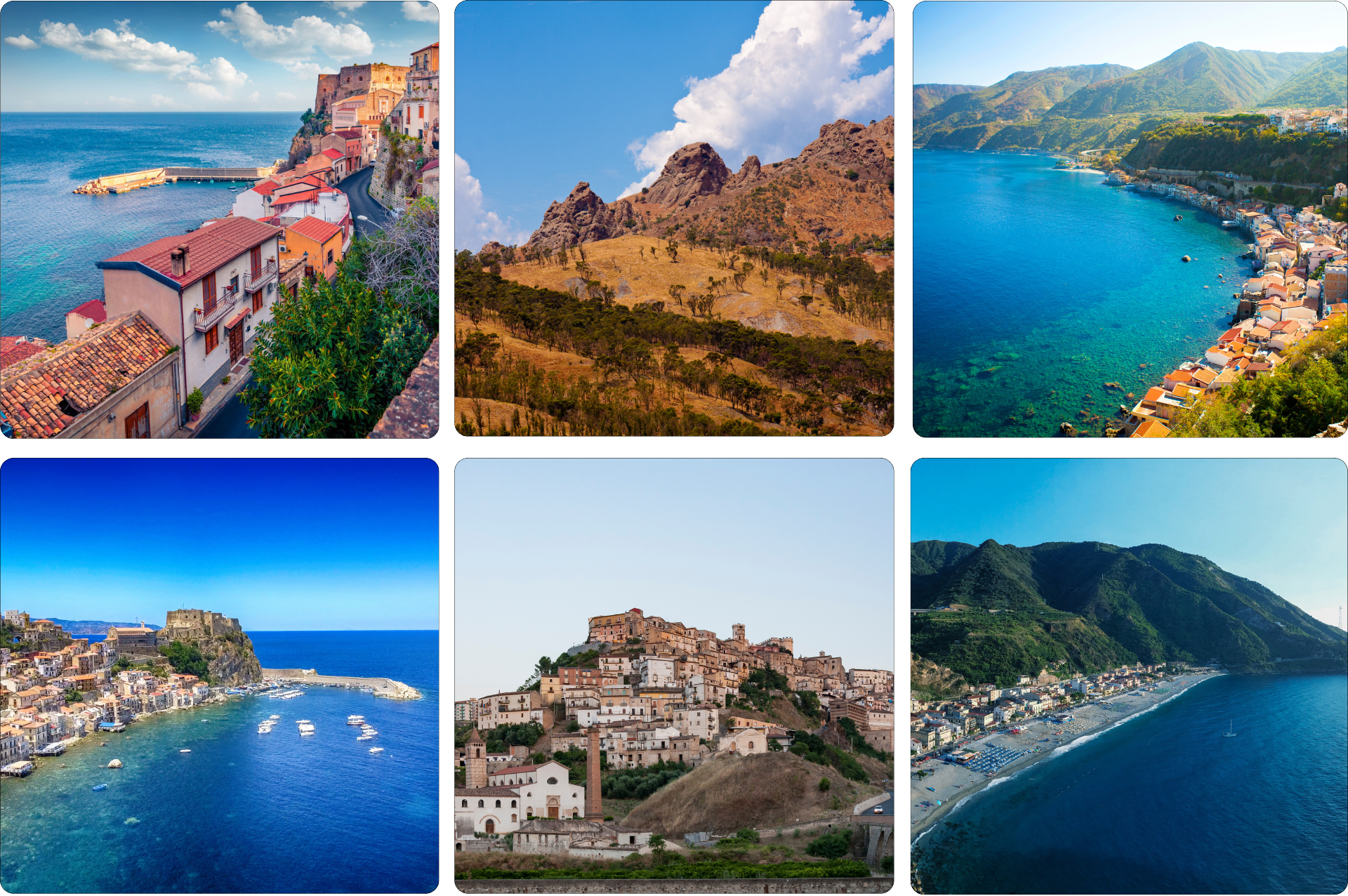Calabria

Thousand-year history of Calabria: from its origins to Magna Graecia
Calabria boasts a history that begins in the Paleolithic, as demonstrated by the findings in the Scalea Caves. The Neolithic saw the spread of settlements, especially in the eastern area, and the Metal Age introduced new populations. But it is with the arrival of the Greeks that the region reached crucial importance, becoming part of the so-called Magna Graecia. Cities such as Reggio Calabria, Sibari, Crotone and Locri emerged as centers of power and culture.
From the Roman Conquest to the Unification of Italy
The Roman era saw a slowdown in development, but Calabria remained important for the production of timber. Various invasions, from the Visigoths to the Goths, marked the post-Roman period, up to the Byzantine domination, which made Calabria a bulwark against the Saracens and a monastic center of notable importance.
The Normans, the Swabians, the Angevins and other rulers followed one another, bringing with them cultural and social changes. The Unification of Italy marked a difficult period for Calabria, with emigration and brigandage. Only in the 20th century did we witness a reversal of the trend, thanks also to tourism and the improvement of economic and social conditions.

Calabria today: cultural heritage and monuments
Calabria preserves a rich artistic and cultural heritage, with monuments ranging from the historic center of Reggio Calabria, rich in Art Nouveau architecture, to the Aragonese Castle, up to precious archaeological sites such as the Capo Colonna area. Churches, abbeys and castles narrate centuries of history and traditions.

Traditional cuisine and typical products
Calabrian cuisine, strongly linked to its food and wine history, reflects the various cultural influences it has undergone over the centuries. From dishes based on 'Nduja and red onion from Tropea, to ancient recipes dating back to Magna Graecia, the Calabrian culinary tradition is a real journey through time and flavours.

Demographics and geography
With approximately 1,855,354 inhabitants and divided into five provinces, Calabria offers a geographically varied territory, from the mountainous reliefs of Aspromonte and Sila to the long coasts washed by the Ionian and Tyrrhenian seas. The region is characterized by uncontaminated nature and breathtaking landscapes, which are the backdrop to a rich and deeply rooted culture.

